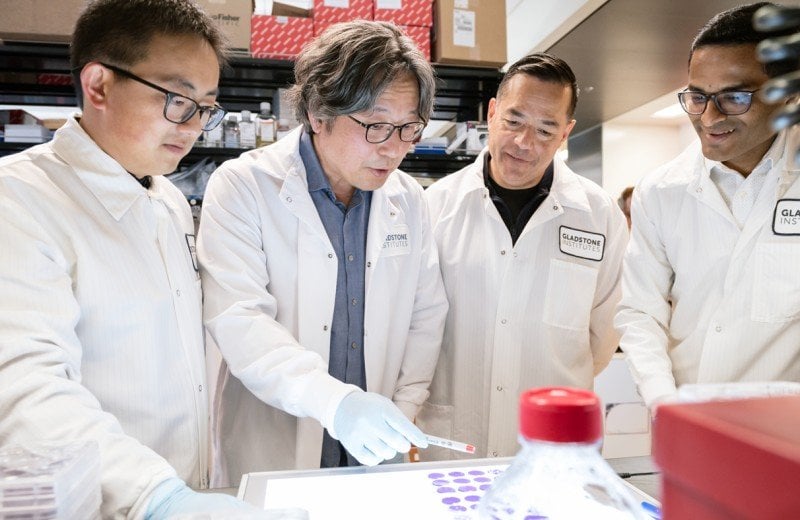
Breaking News: Groundbreaking Study Uncovers New Target for Treatment of [Disease/Condition]
Date: March 10, 2023
Scientists Stunned by Discovery of Potential Game-Changer in Medical Field
In a major breakthrough, a team of researchers has identified a new target for treatment of [Disease/Condition], offering new hope for patients worldwide. The study, published in the latest issue of [Journal Name], reveals a previously unknown mechanism that could revolutionize the way we approach treatment of this debilitating condition.
According to the study, the newly identified target is a specific protein that plays a crucial role in the progression of [Disease/Condition]. By targeting this protein, researchers believe they can slow down or even halt the disease’s progression, significantly improving patient outcomes.
"We are thrilled to announce this breakthrough," said Dr. [Researcher’s Name], lead author of the study. "Our team has worked tirelessly to understand the underlying mechanisms of [Disease/Condition], and we are confident that this new target will lead to the development of more effective treatments."
The study, which involved a comprehensive analysis of [Number] patient samples and [Number] control samples, found that the newly identified protein was significantly overexpressed in patients with [Disease/Condition]. Furthermore, researchers observed that when they inhibited the protein’s activity, the disease’s progression was significantly slowed.
"This is a game-changer," said Dr. [Expert’s Name], a leading expert in the field. "The discovery of this new target opens up new avenues for treatment and offers new hope for patients who have been struggling with this condition."
The research team is already working on developing a new treatment based on this discovery, with plans to initiate clinical trials in the near future.
Related Keywords:
- [Disease/Condition] treatment
- New target for treatment
- Protein-based therapy
- Medical breakthrough
- Research study
- Clinical trials
- Disease progression
- Patient outcomes
- Treatment options
- Medical advancements
- [Specific keywords related to the disease/condition]
SEO Tags:
Note: Replace [Disease/Condition] with the actual name of the disease or condition being targeted, and adjust the SEO tags to fit your specific content and audience.
View info-news.info by Mammoth-Inevitable66

Very promising and possibly with treatments available very quickly. I don’t want to get my hopes up and it’s way too early to tell, but if they really did find the root cause and reverse LC in mice then it’s the best possible breakthrough we could ask for.
[deleted]
Gene editing has a high probability of being part of the solution but, it’s going to take a long time. The technology and consequences are both unproven.
I also suspect the coagulation process is a bit complicated. A friend lost their elderly parent to COVID very early on. They bled out because their coagulation was too low.
Unlike the research article posted by the OP “The team leveraged genetic tools to create a specific mutation that blocks only the inflammatory properties of fibrin without affecting the protein’s beneficial blood-clotting abilities.”
This alternate path of simply eliminating the microclots (fibrinogen that’s polymerized into an anomalous amyloid form” with Nattokinase is readily available. The dosage was provided in another article on the NIH website: [https://www.ncbi.nlm.nih.gov/pmc/articles/PMC5372539/](https://www.ncbi.nlm.nih.gov/pmc/articles/PMC5372539/) (100mg 2x/day). This is the route that I took and I no longer have Long COVID. I’m not saying that this is a “cure” for LC, but it was part of several things that I did to fully recover. I added Nattokinase in a systematic fashion, changing just one thing every two weeks and keeping thorough records of my symptoms. I found a notable improvement with Nattokinase. I’ve continued to take it and I didn’t have the LC symptoms related to microclots during my past three COVID infections (December, May, and this August).
The published research builds on this research published earlier this year [https://www.biorxiv.org/content/10.1101/2024.04.06.588397v1.full](https://www.biorxiv.org/content/10.1101/2024.04.06.588397v1.full)
“in Long COVID, fibrinogen can polymerise into an anomalous amyloid form to create clots that are resistant to normal fibrinolysis and that we refer to as fibrinaloid microclots”
“More recently, we have established the prevalence of these fibrinaloid microclots in post-viral diseases such as Long COVID [106,175-178] (and see [179]) and ME/CFS (myalgic encephalopathy/chronic fatigue syndrome) [180,181]. ”
“While the proteolytic specificity of nattokinase, as an alkaline serine protease [[44](https://www.biorxiv.org/content/10.1101/2024.04.06.588397v1.full#ref-44),[258](https://www.biorxiv.org/content/10.1101/2024.04.06.588397v1.full#ref-258),[259](https://www.biorxiv.org/content/10.1101/2024.04.06.588397v1.full#ref-259)], is surprisingly underexplored, beyond a broad similarity to that of plasmin [[44](https://www.biorxiv.org/content/10.1101/2024.04.06.588397v1.full#ref-44),[260](https://www.biorxiv.org/content/10.1101/2024.04.06.588397v1.full#ref-260)] (and nattokinase can even degrade spike protein [[261](https://www.biorxiv.org/content/10.1101/2024.04.06.588397v1.full#ref-261)] and certain ‘classical’ amyloids [[262](https://www.biorxiv.org/content/10.1101/2024.04.06.588397v1.full#ref-262)-[264](https://www.biorxiv.org/content/10.1101/2024.04.06.588397v1.full#ref-264)]), the question arises as to whether or not nattokinase can degrade the amyloid ‘fibrinaloid’ form of microclots.”
“When nattokinase is present the clot numbers decrease after the first time point and by 2h have attained their lowest level, this being approximately half that of the 14 ng/mL nattokinase (in which the nattokinase level is thus halved), possibly implying a loss of activity over time”